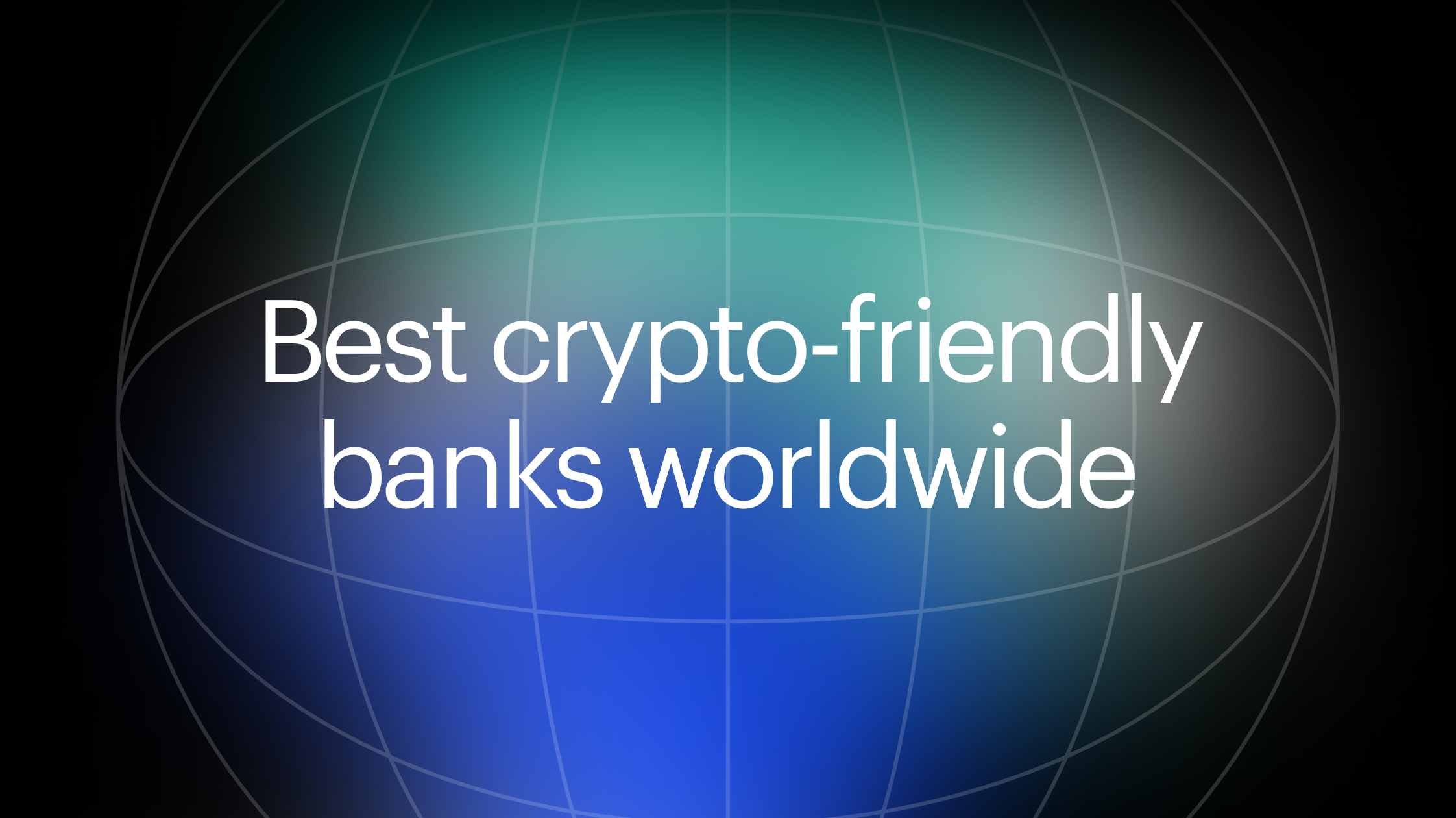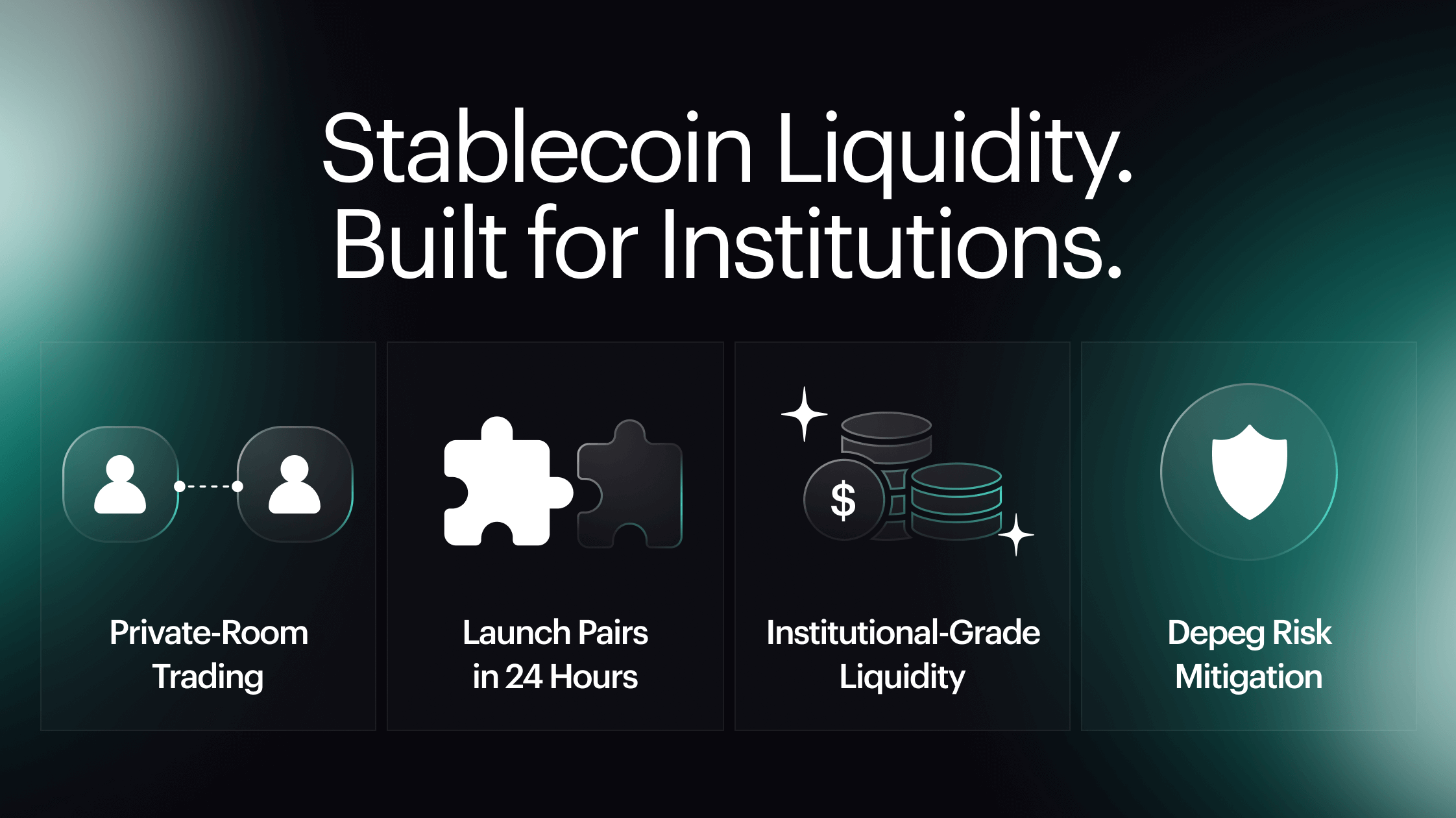
Cryptocurrency, though a nascent industry, is by no means minuscule. For global banking giants, the crypto landscape offers a once-in-a-generation chance to redefine financial dominance. Indeed, the cryptocurrency movement might just be the finance sector's most groundbreaking stride in recent history.
With the crypto market’s valuation soaring past the $1 trillion mark and a user base nearing 420 million, it's clear that cryptocurrency isn't just a fleeting trend but has cemented its place as a mainstream financial instrument.
Pioneers of the conventional financial realm such as Fidelity, BlackRock, Goldman Sachs, Citi, and HSBC haven’t been mere spectators – they've dived right in. Across the Atlantic, European financial stalwarts like Deutsche Bank, Credit Agricole, and Santander have vocalized plans to immerse themselves into crypto custodial services. With the European Union signaling positivity with its Markets in Crypto Assets (MiCA) regulation, the momentum behind cryptocurrency’s evolution is only intensifying.
Amidst this transformation, traditional banks stand at an interesting crossroads. With increasing numbers venturing into the crypto realm and diversifying their investment portfolios, funds that were conventionally directed towards savings or traditional assets are now being channeled into digital currencies.
New market players, new revenue streams
The financial canvas is evolving, and banks see a gleaming opportunity in the burgeoning world of cryptocurrencies. As this asset class garners widespread interest, the potential to carve out new revenue streams becomes palpable. Whether it's integrating digital currencies into conventional offerings such as debit card rewards, fractional investing, or peer-to-peer transactions, there's an evident synergy waiting to be harnessed.
Moreover, it's not merely about chasing fresh profits. Crypto can also be a bulwark to fortify banks' existing profit margins. Given the inherent efficiencies of blockchain technology, banks stand to gain from swifter and more cost-efficient international transfers — an undeniable improvement over traditional, often sluggish, remittance services.
But venturing into these crypto waters isn't without challenges. Establishing new services is both a financial and temporal investment, potentially deterring many. The solution? Strategic partnerships with seasoned Web3 fintech entities, experienced in navigating the intricate labyrinths of KYC, AML, SOC2, and the like. Such alliances not only ensure optimal services for bank customers but also uphold the trust and security integral to the banking relationship.
In essence, traditional financial institutions, or TradFi, stand on the cusp of an era where they can seamlessly dovetail the demands of their clientele, bolster their revenue, and solidify their reputation as the go-to 'crypto ally'. Transitioning from safeguarding the tangible wallet to championing its digital counterpart is a foreseeable future, and the urgency to architect this evolution is now.
What are crypto-friendly banks?
The allure of cryptocurrencies, for many, lies in their inherent volatility. Such unpredictability paves the way for potential high returns in a condensed time frame. Conversely, the flip side of the coin is also starkly evident: one's substantial investments can depreciate in a matter of hours. The continuous oscillation in cryptocurrency values and the underlying belief in their upward trajectory have piqued the interest of individuals spanning diverse backgrounds, catalyzing a surge in bitcoin acquisitions.
Now, delving into the world of crypto is not akin to a routine purchase of conventional currencies. Cryptocurrencies come with their unique modus operandi. Even though they've permeated the collective consciousness for some years now, a substantial number grapple with the nuances of this digital asset class. And here's where banks, evolving with the times, have stepped in, offering streamlined crypto procurement solutions.
Historically, venturing into cryptocurrency required a digital wallet, an account with a trading platform, and a means of payment. However, contrary to popular belief, this is not a complex system. Essentially, trading platforms serve as marketplaces that enable the buying of cryptocurrencies. Once acquired, the owner can either keep the asset with platforms that offer combined trading and custody services and assume the associated risks, or transfer it to their private wallet for enhanced security.
Crypto-adaptive banks have deftly removed some of these layers, offering a more direct route. Acting as intermediaries, they liaise with trading platforms and liquidity providers, mitigating the need for customers to juggle multiple accounts. In this evolved paradigm, the bank assumes the mantle of simplifying the crypto acquisition journey, making it more accessible for the everyday individual.
How do crypto-friendly banks operate
Crypto-friendly banks, which have emerged to cater specifically to the cryptocurrency ecosystem, operate within a unique framework. Essential to their operation is a robust infrastructure, often underpinned by access to liquidity sources either via trading venues or liquidity providers and adept payment processors. This foundational strength ensures fluid transitions between crypto and fiat currencies.
While their forte might lie in cryptocurrencies, these banks don't limit themselves to just that. Many bridge the gap between the digital asset realm and traditional banking, offering a comprehensive suite that spans routine savings and checking accounts to more complex services like loans and credit facilities. Some of these institutions are devoted entirely to the crypto sphere, while others infuse cryptocurrency services into their broader offerings, widening their appeal.
However, the scope and expanse of their services often vary based on their geographical locations. The regulatory landscape, the societal perception of cryptocurrencies, and the local economic conditions play pivotal roles in shaping their offerings. For instance, banks nestled in regions with a favorable view of crypto or milder regulations tend to offer a broader spectrum of services than those in more restrictive jurisdictions.
A recent shake-up in the U.S. banking sector underscores the volatility of the crypto banking world. The unexpected challenges faced by Silvergate Bank led to a ripple effect, with its clientele gravitating towards Signature Bank New York. However, the subsequent struggles of Signature Bank, followed by the decline of the Silicon Valley Bank, have cast shadows over the U.S. as a primary hub for crypto banking.
In light of these shifts, other global locales are emerging as contenders. According to a report by Coincub and Finery Markets, Switzerland, Liechtenstein, and Dubai, renowned for their sturdy financial systems, are positioning themselves as viable alternatives, drawing crypto businesses with their allure. On the Asian front, Singapore and Hong Kong stand out, thanks to their favorable business policies and rapidly growing crypto communities. This reshuffling in the crypto-banking world points towards a broader global paradigm shift, steered by evolving regulatory frameworks and new economic vistas.
Top Crypto Banks Worldwide (For Now)
Revolut
Emerging as a fintech trailblazer, Revolut debuted in the U.S. in March 2020. Despite its relatively recent inception, its innovative banking model has propelled it to significant acclaim, especially within European markets. A notable feature is its user-friendly mobile app (available on both Android and iOS), which empowers users to buy bitcoin directly. Besides the anytime purchase option, it introduces an 'auto exchange' feature that triggers a buy when the exchange rate aligns with a user-set price. Registration is complimentary, granting users an array of features from early salary access to an FDIC-insured bank account.
Ally Bank
Ally Bank, a prominent online banking entity, offers a unique entry point for those keen on crypto investments. Although direct crypto trading isn't facilitated, Ally opens doors to crypto-focused investment channels such as trusts, Bitcoin futures, and cryptocurrency-oriented stocks. Their expansive investment options come with the added perk of zero commission fees for most trades. Users have the flexibility to opt for managed portfolios, leveraging Robo-advisors, or venture into self-directed trading, putting them firmly in the driver's seat of their investment journey.
Quontic
Charting its own path in the crypto realm, Quontic stands out with offerings tailored for both crypto novices and aficionados. Though direct crypto trading isn't on the table, their Bitcoin Rewards Checking account is an intriguing alternative. Instead of the conventional cash-based interest, Quontic awards users with 1.50% in Bitcoin on all POS transactions via the affiliated debit card. These bitcoin rewards can then be converted to cash via NYDIG, albeit at a 2% fee. Prospective users should be aware of the $500 minimum deposit for account initiation. It's also noteworthy that residents of Hawaii and North Carolina aren't eligible for this offering.
Bank of America
As one of the premier banks with a global presence, Bank of America continuously adapts to the fluctuating financial currents. For US customers interested in cryptocurrencies, direct trading isn't offered. However, through its subsidiary, Merill Edge, the bank provides an avenue for indirect exposure. This entails investments in ETFs and funds that monitor companies deeply entrenched in the blockchain domain. Additionally, for Coinbase users, Bank of America ensures a smooth experience when it comes to withdrawing funds.
Juno
Emerging as a recognizable name for its generous interest on checking accounts and tempting cashback rewards, Juno has seamlessly integrated into the crypto sphere, positioning itself as the convergence point of banking and cryptocurrency. For those eager to dabble in digital currencies, Juno permits its customers to channel their paychecks directly into crypto. Offering the added benefit of transacting in cryptocurrencies via their checking accounts without the sting of added fees, any funds retained in an account appreciate at 5% interest. Interestingly, using their OnJuno debit card for crypto acquisitions grants users a similar interest rate. In contrast to several banks which tie up funds with week-long waiting periods, Juno stands out, allowing instantaneous crypto cashouts.
Goldman Sachs
Goldman Sachs' crypto trajectory offers a vivid snapshot of the market's evolving temperament. Initiating their crypto trading endeavors in 2018, they briefly stepped back, only to make a formidable return in 2021 when cryptocurrencies, especially bitcoin, witnessed a surge in interest. Now, they offer a suite of options and futures for Ether and bitcoin. Remarkably, they pioneered a significant milestone by being among the first major global banks to conduct an over-the-counter crypto trade. Such diverse offerings translate into broader investment avenues, granting investors the flexibility and potential for growth in their portfolios.
USAA
The United Services Automobile Association (USAA) has carved a niche in serving both present and former military members along with their families, no matter where they reside globally. Among its diverse range of financial products, one particularly innovative feature stands out: integration with Coinbase Connect. For those who link their Coinbase account to USAA, there’s the convenience of observing their cryptocurrency balances and transactions directly via the bank’s portal, a seamless amalgamation of traditional and digital banking.
Wirex
Although not strictly categorized as a bank, Wirex’s offerings resonate with those seeking a blend of traditional and crypto financial services. Users have the flexibility to transact in over 37 diverse currencies, with fiat-to-fiat conversions executed sans fees at attractive interbank exchange rates. Their Mastercard debit card makes spending cryptocurrency a breeze, with real-time conversions and the added perk of up to 8% cashback rewards.
Fidor
Hailing from Germany, Fidor Bank serves as an epitome of how traditional banking can effortlessly coalesce with the crypto wave. Through its ties with bitcoin.de and Kraken, customers can trade in a spectrum of cryptocurrencies. Its unique selling proposition? The ability for its users to mesh their checking accounts with their cryptocurrency wallets using the bank's proprietary API. Such amalgamation ensures that users can peek into their wallets directly from the bank's dashboard, irrespective of their global location.
Bankprov
Tailored specifically with crypto-oriented businesses in mind, Bankprov offers more than just a nod to digital currencies; it fully immerses itself in their world. Businesses venturing into the crypto realm can benefit from its API banking, crypto-backed financial products like loans and credit lines, and even access to Bitcoin ATMs. The ProvXchange feature ensures uninterrupted real-time transfers to fellow account holders round-the-clock, accommodating both cash and cryptocurrency transactions. Furthermore, for those wary of the volatility of the crypto space, the assurance comes in the form of backing by both the FDIC and the Depositors Insurance Fund.
Bank Frick
Liechtenstein's Bank Frick marries age-old family banking traditions with the dynamism of modern finance. As a result, it's not just another bank but an institution that celebrates both its rich legacy and the future of finance—cryptocurrency. With a suite of services spanning from traditional banking to cryptocurrency trading and storage, Bank Frick stands out for its progressive stance and its embrace of technological evolution.
Simple
Positioning itself as a gateway to the world of cryptocurrencies, Simple is more than just a name; it’s a mission. The platform is crafted with the intent of demystifying the often convoluted realm of cryptocurrency investing for the everyday individual. While not a traditional bank, Simple stands tall as a regulated digital asset institution with an unwavering commitment to crypto. While its services are currently tailored for UK residents, there are plans afoot to not only broaden its horizons but also introduce a Simple Mastercard. Committed to living up to its name, the platform offers a straightforward user experience, allowing users to tap into an array of coins and tools, including an automation feature that triggers purchases at specific crypto price points.
Bankera
In the northern reaches of Europe, Lithuania's Bankera stands as a beacon for cryptocurrency enthusiasts. Designed to cater to a modern clientele, the bank offers a cornucopia of blockchain-integrated services. Whether it's purchasing, selling, or safeguarding Bitcoins, Bankera ensures its operations remain under the vigilant supervision of the Bank of Lithuania.
FinecoBank
FinecoBank integrates the world of traditional banking with the dynamism of cryptocurrency. Offering a plethora of services like trading and custody, the bank goes a step further by fielding a dedicated team of professionals. This expert team assists and guides customers, ensuring they find their footing in the intricate cryptocurrency landscape.
SEBA Bank
Switzerland, renowned for its robust financial landscape, plays host to SEBA Bank. Rooted deeply in the crypto ecosystem, the bank facilitates a myriad of cryptocurrency-focused services. From delving into blockchain innovations to simplifying the purchase, sale, and secure storage of Bitcoins, SEBA Bank ensures its customers are well-accommodated. Reflecting its adherence to stringent quality standards, the Swiss Financial Market Supervisory Authority has duly licensed the bank.
SolarisBank
Emerging from Germany's vibrant financial scene, SolarisBank has carved its niche by intertwining blockchain services with traditional banking. Customers are empowered to explore a diverse palette of cryptocurrency-focused amenities, ranging from everyday trading to the intricate realms of token creation and management. Further solidifying its reputation and trustworthiness, SolarisBank operates under the watchful eyes of the German financial authority, BaFin.
Liechtensteinische Landesbank
Nestled in Liechtenstein, the state-owned Liechtensteinische Landesbank epitomizes stability and security. Beyond offering a spectrum of traditional financial services, the bank has ventured into the captivating domain of cryptocurrency investments, consolidating its reputation as a steadfast institution.
Privatbank Von Graffenried AG
Hailing from the financial hub of Switzerland, Privatbank Von Graffenried AG weaves a unique narrative of banking that is rooted in personalization. Distinguishing itself from its peers, the bank places an unparalleled emphasis on client confidentiality, further enhanced by its foray into the cryptocurrency investment arena.
Valletta Bank
Bank of Valletta, based in the historic city of Valletta, brings a multifaceted approach to cryptocurrency. Beyond offering rudimentary services like trading and custody, the bank elevates its offering by introducing structured and fund-centric cryptocurrency investment alternatives, making it a versatile choice for investors of varying expertise levels.
The Bottom Line
Recent disruptions in the U.S. crypto-banking ecosystem have brought to the fore the indispensability of crypto-friendly banking solutions in today's financial matrix. With the abrupt closure of several crypto-centric lenders, including names like Silvergate Capital Corp, Signature Bank, and Silicon Valley Bank, crypto enterprises are navigating an increasingly treacherous path. This situation has exacerbated to a point where, as Marcus Foster, head of crypto policy at Coadec, highlights in a recent Reuters analysis, "Crypto and Web3 start-ups...simply cannot get a business bank account."
U.S. regulators are, understandably, raising red flags, voicing concerns about banking models with a pronounced tilt towards crypto clients. Their apprehensions are rooted in the volatility of the crypto market, evidenced by events such as the bankruptcy of the major exchange, FTX. Coupled with this is the ongoing worry about potential liquidity risks, wherein crypto assets might be swiftly converted into real currency, leading to rapid outflows.
This intricate scenario is compelling digital asset companies to broaden their horizons and explore alternative, often smaller, financial entities. For instance, FV Bank in Puerto Rico reported a notable rise in customer inquiries, despite lacking Federal Deposit Insurance Corp insurance. Across the Atlantic, Bank Frick in Liechtenstein has seen a "significant increase in account opening requests."
Yet, this shift isn't without its challenges. Some players are pointing out at a rising "concentration risk" from an increasing client base turning to fewer banks is the "biggest challenge." These banks now shoulder a heightened responsibility to ensure meticulous risk management and monitoring.
It's undeniable that crypto enterprises heavily rely on traditional banking systems for operations, debunking the myth of a bank-free crypto future. As Paolo Ardoino from Tether rightly pointed out, “Of course the motto of crypto is 'we are going to replace the banks', but...we are not there yet.” Banks, especially crypto-friendly ones, remain an important part of the market.
In the wake of stringent vetting processes by major banks, and given the cautious stance due to elevated money-laundering risks in the crypto sector, the current scenario underscores a clear divergence. While industry giants like Coinbase and Gemini have managed to foster ties with major U.S. banks, smaller crypto start-ups face daunting challenges in securing robust banking partnerships.
The evolving landscape accentuates that crypto-friendly banks are not merely advantageous but crucial for a balanced and holistic crypto market. The U.S. may currently present a constricted landscape, but the ensuing shifts are carving out expansive global avenues for the crypto realm.
Once procured, the owner can either retain the asset with venues that bundle trading and custody services and take associated risks or transfer it to their private wallet for added security.

























